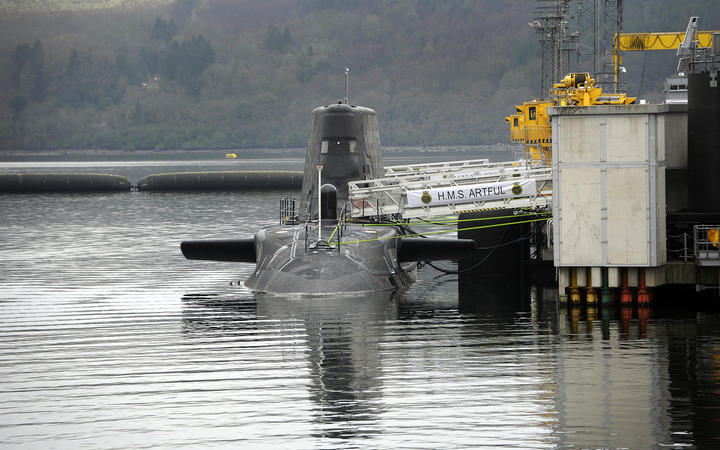Britain, the US and Australia have announced a special security pact to share advanced technologies including nuclear-powered submarine know-how.
 An Astute-class British Navy nuclear submarine (file). The new defence partnership will initially focus on a fleet of nuclear-powered submarines for the Australian Navy Photo: AFP
An Astute-class British Navy nuclear submarine (file). The new defence partnership will initially focus on a fleet of nuclear-powered submarines for the Australian Navy Photo: AFP
The partnership, labelled Aukus, aims to “defend our shared interests in the Indo-Pacific”, the leaders of the three nations said in a joint statement.
Along with technology, industrial bases and supply chains will also be shared.
The defence pact could see Australia scrap a deal to build French-designed submarines, Australian media report.
France won a $A50 billion contract to build 12 submarines for the Australian Navy in 2016. The deal was Australia’s largest-ever defence contract.
However, the construction of submarines has been hit with delays largely because of Canberra’s requirement that many components be sourced locally.
On Wednesday, US President Joe Biden, UK Prime Minister Boris Johnson and his Australian counterpart Scott Morrison issued a joint statement on the launch of the new security partnership.
“As the first initiative under Aukus… we commit to a shared ambition to support Australia in acquiring nuclear-powered submarines for the Royal Australian Navy,” the statement said.
“This capability will promote stability in the Indo-Pacific and will be deployed in support of our shared values and interests,” it said.
The leaders said the aim was to “bring an Australian capability into service at the earliest achievable date”, adding: “Australia remains committed to fulfilling all of its obligations as a non-nuclear weapons state.”
It went on to say that the defence pact would also focus on cyber capabilities, artificial intelligence and “additional undersea capabilities”.
Johnson said the three nations were natural allies and that the alliance would “bring us closer than ever”.
“This partnership will become increasingly vital for defending our interests, and… protecting our people back at home,” he said.
In recent weeks, the UK’s HMS Queen Elizabeth aircraft carrier has been deployed to the Indo-Pacific region alongside personnel and equipment from the US.
The joint statement said the Indo-Pacific was a region with potential flashpoints, including unresolved territorial disputes, threats from terrorism and a problem with organised crime. “It is on the frontline of new security challenges, including in cyberspace,” it said.
The defence agreement will have ramifications for China, BBC defence correspondent Johnathan Beale reports. Though British officials insist the new defence agreement is not a response to any one country, the UK government does say it is about ensuring prosperity, security and stability in the region and supporting a peaceful “rules-based order”. And it is no secret that Britain, the US and Australia share concerns about China’s military build up in the Indo-Pacific.
